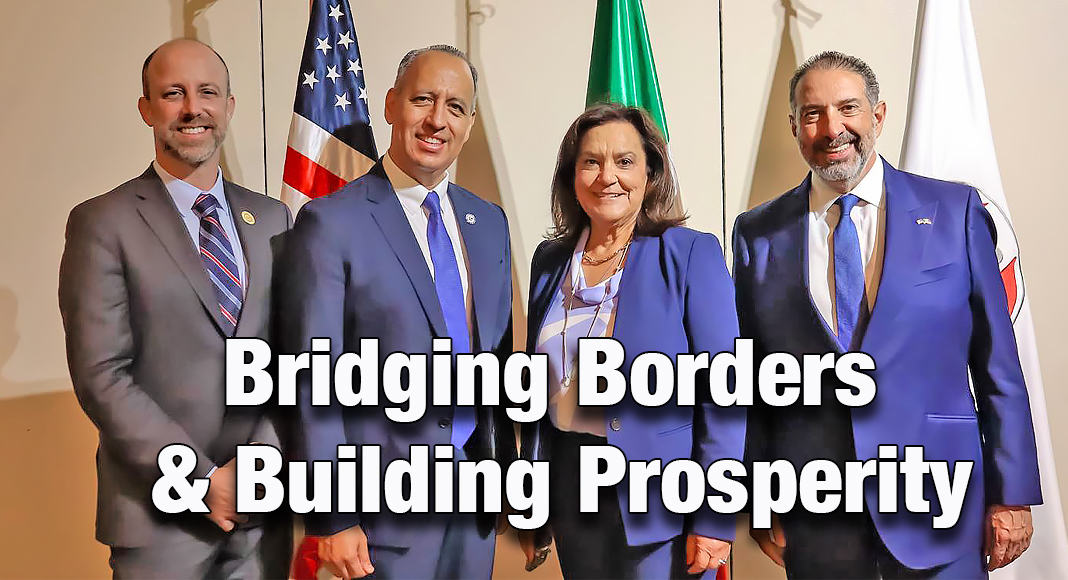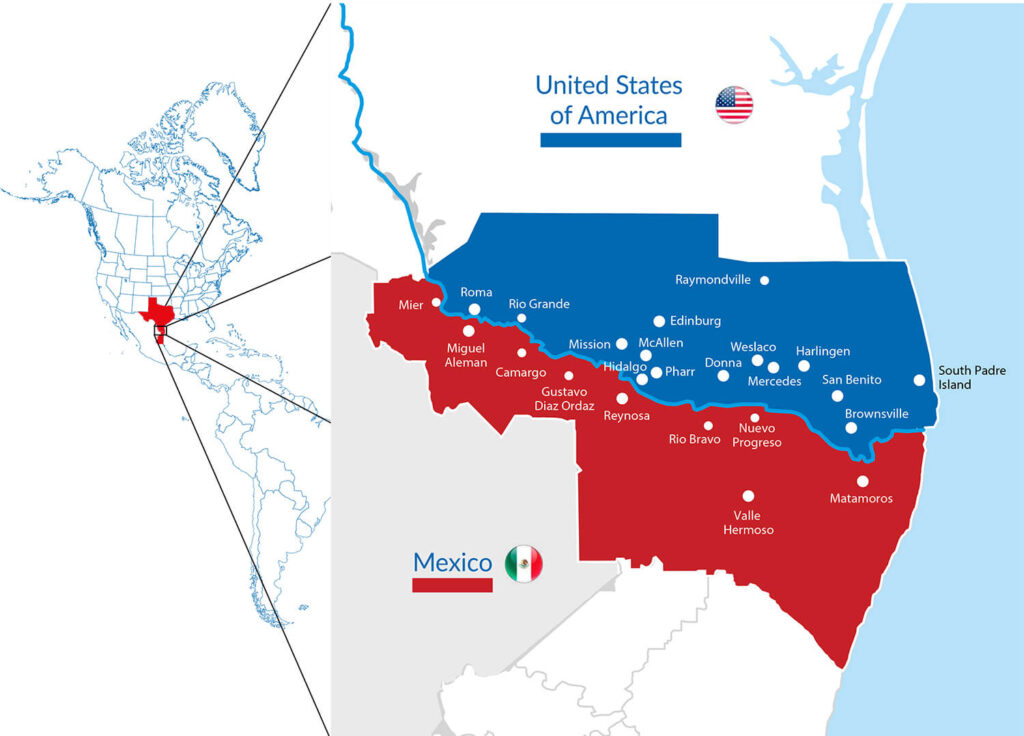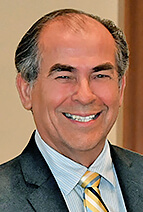
Texas Border Business
By Roberto Hugo González
Brownsville, Texas – The “U.S.-Mexico Leader Summit: Binational High-Level Dialogue” held in Brownsville, Texas, as part of the Northeast Chapter’s “Extend Our Reach” campaign, marked a significant step forward in fostering economic growth and binational cooperation in the RioPlex region. This initiative, which aims to consolidate the Rio Grande Valley in Texas and northern Tamaulipas in Mexico under a unified brand, seeks to leverage the competitive advantages of this unique cross-border area to attract investment, development, and prosperity for both communities. RioPlex is an initiative of Judge Richard Cortez Prosperity Task Force’s CEO Group – business leaders from the Rio Grande Valley and northern Tamaulipas.
The summit brought together a distinguished group of binational leaders, including Roberto Velasco, Head of the North America Unit at Mexico’s Ministry of Foreign Affairs (SRE); Altagracia Gómez, Coordinator of the Business Advisory Council; John Cowen, Mayor of Brownsville; Minister Judith Arrieta, Consul General of Mexico in Brownsville; Adriana Cruz, Executive Director of Economic Development and Tourism at the Office of Governor Greg Abbott; along with Congress members. Also, Edinburg mayor Ramiro Garza and Mission mayor Norie Gonzalez Garza. Executives from U.S. companies operating in Mexico, Texas-based businesses, and members of Congress from both countries also participated, exchanging valuable ideas to drive economic growth and prosperity in the RioPlex region.

The summit emphasized the profound potential of economic growth to transform the area. As Joaquin Spamer, a Hidalgo Prosperity Task member and CEO Group leader who founded RioPlex USMCA Friendshoring Capital, shared with Texas Border Business, “Economic growth has the potential to transform communities profoundly. As the economy expands, new job opportunities are created, incomes rise, and the quality of life improves.” This sentiment reflects a more robust understanding that economic expansion is not just about numbers but about the well-being of communities.
Hidalgo County Judge Richard Cortez said a growing economy can drive infrastructure, education, and healthcare investment, reducing inequalities and promoting greater social cohesion. “A dynamic economic environment fosters innovation and entrepreneurship, creating a virtuous cycle of sustainable development. This growth, he noted, is a powerful tool for positive change, enabling communities to move beyond mere economic metrics to achieve broader social goals.
At the summit, a significant topic of discussion was the impact of trade agreements like NAFTA and its successor, the USMCA, on the economic landscape of Mexico and the North American region. According to Lorenzo Barrera, President of the AmCham Northeast Chapter, “NAFTA put Mexico on the global trade map, allowing the country to integrate more deeply into the world economy.” This integration has been fundamental in transforming Mexico’s economic landscape.
NAFTA facilitated an influx of foreign investment that boosted economic growth and fostered the transfer of technology and knowledge, significantly enhancing the competitiveness of Mexican companies. Preferential access to the U.S. and Canadian markets enabled Mexican companies to expand their exports and participate in global supply chains. As Barrera noted, “NAFTA also significantly impacted employment and income levels in Mexico. Job creation in advanced manufacturing, automotive, and electronics sectors contributed to improved living standards and the development of a more robust middle class.”
The transition from NAFTA to the USMCA brought further progress, particularly in legislative harmonization across North America, which has been essential for businesses operating in multiple jurisdictions. This harmonization has facilitated smoother trade and investment flows between the U.S., Mexico, and Canada, further integrating the regional economy.
Trade relations between Texas and Mexico have long been a cornerstone of the region’s economic landscape, and they continue to evolve amid changing economic and political contexts. One of the primary challenges identified at the summit is the need for businesses to adapt to new regulations and trade policies arising from the implementation of the USMCA. Mario Reyna, Hidalgo County Prosperity Task Force member, explained, “These regulations require rigorous compliance and constant adaptation by businesses to remain competitive in the global market.”
Despite these challenges, the opportunities are vast. Glenn Hammer, President and CEO of the Texas Business Association highlighted Texas’s rapid economic growth, describing the state as a “rocket ship” due to its strong trade relations. This growth, he noted, offers Mexican companies significant opportunities to expand and collaborate in emerging sectors such as aerospace technology and renewable energy.
Additionally, Texas plays a strategic role in U.S.-Mexico trade, with 81% of goods from Mexico entering the United States through the state. This logistics infrastructure is crucial for improving operational efficiency and reducing business costs on both sides of the border, further cementing Texas’s role as a vital link in North American trade.
The summit also highlighted Texas’s remarkable economic transformation in recent decades. “Texas has experienced a remarkable economic transformation, shifting from a predominantly agricultural economy to becoming a hub of innovation and advanced technology,” noted Spamer, President of Grupo CIL and AmCham’s “Extend Our Reach” representative in Texas. This shift has been driven by business-friendly policies, robust infrastructure, and a highly skilled workforce.
Investment in research and development has positioned Texas as a leader in cutting-edge technology, attracting companies and talent worldwide. The aerospace sector, in particular, has seen exponential growth, with companies like SpaceX establishing operations in the state. “This development has created high-quality jobs and fostered collaboration between the public and private sectors to drive innovation,” Spamer observed.
Moreover, Texas has leveraged its natural resources to lead in renewable energy production. The state is one of the largest wind energy producers in the United States and is heavily investing in solar energy. “These initiatives contribute to environmental sustainability, diversify the economy, and make it more resilient to market fluctuations,” Spamer added.
The RioPlex initiative aims to unify promotion and economic development efforts on both sides of the border, creating a stronger and more competitive region. With the slogan “USMCA Friendshoring Capital,” the initiative seeks to attract investments and foster sustainable economic growth. As Spamer articulated, “The vision of RioPlex is to unify all promotion and economic development efforts to make the region known worldwide.”
The collaboration between business leaders, economic development organizations, and authorities is crucial to the success of this project. By leveraging the region’s unique binational advantages and promoting a shared financial vision, RioPlex has the potential to become a benchmark for regional prosperity and international investment.
The summit in Brownsville highlighted the immense potential of the RioPlex region and set the stage for future collaboration and growth. Judge Cortez concluded, “This is not just about economic growth; it’s about building a bridge of prosperity that connects communities, fosters innovation, and creates a sustainable future for all.”
The “U.S.-Mexico Leader Summit: Binational High-Level Dialogue” has the strategic importance of the RioPlex initiative in fostering binational collaboration and driving economic growth. By consolidating the region under a unified brand and leveraging its competitive advantages, RioPlex aims to attract global investment, promote regional prosperity, and build a bridge of economic and social opportunity that spans both sides of the U.S.-Mexico border.




